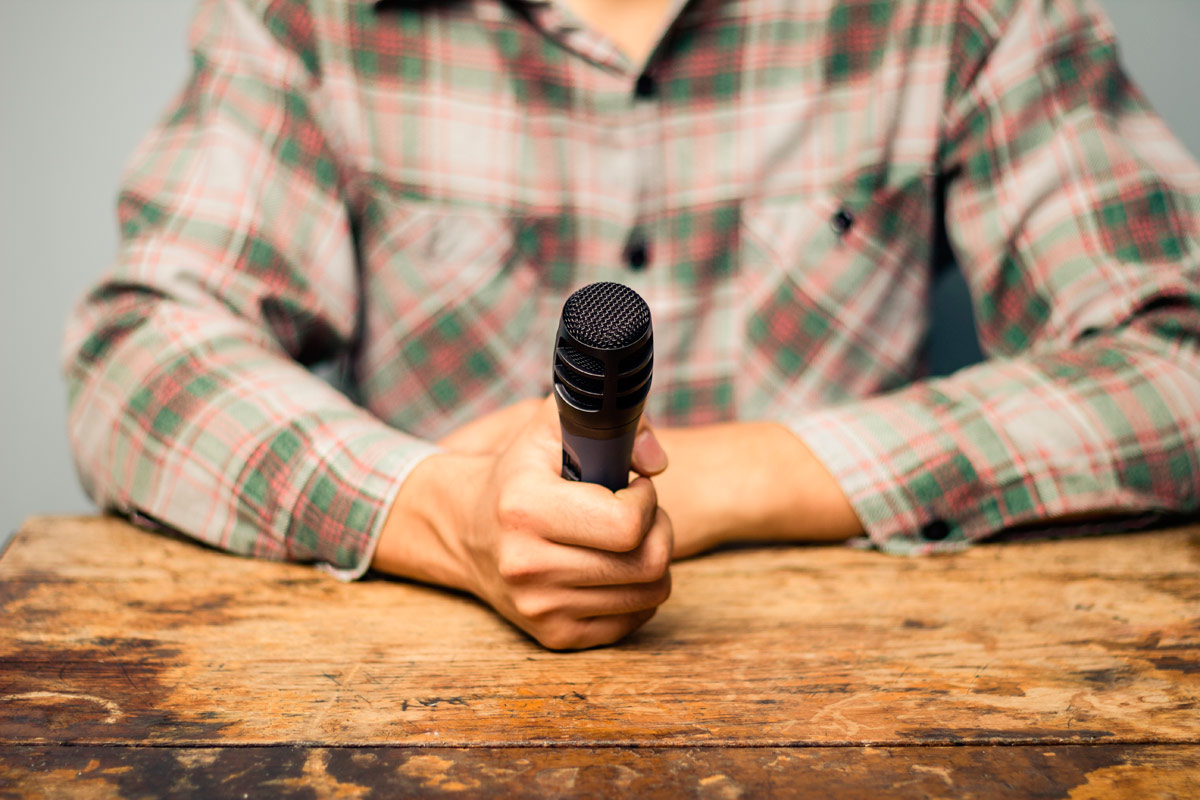In an age of constantly-recycled content clogging up cyberspace, it is a source of joy for the TylerBale team that much of our work requires us to go out and speak to people to gain exclusive material.
From the business leaders we talk to in the course of putting together each issue of Working Capital to the celebrities featured in the pages of Army&You, we put our journalistic training to good use to conduct interviews.
While in theory an interview is easy – it’s no more than a conversation with added note-taking when all is said and done – the reality can be a lot less straightforward. Missed questions, incomplete notes and even a lack of impartiality can lead to boring or incorrect copy, which ultimately impacts on the message you are trying to get across.
Here, in no particular order, are six things to bear in mind should you find yourself asking the questions in an interview:
1. DO YOUR RESEARCH
Whether you’re speaking to the CEO of a multinational company or Joe Bloggs on the street, you owe them the courtesy of finding out a bit about them before the interview. You don’t have to go full-on private investigator, but brushing up on their background, their interests and any interesting facts will help the interview go much more smoothly.
As an added benefit, showing that you’ve taken the time to learn a bit about the interviewee can make them warm to you, leading to fuller answers and even leading the conversation down interesting new avenues.
2. PLAN, BUT DON’T RESTRICT YOURSELF
Although seasoned communicators are happy to go into an interview without a set idea of the questions they are going to ask, this tactic can be a bit daunting for others. To combat this, it’s not a bad idea to write down a set of questions that you want to include during the course of conversation.
If you go down this route, our advice is to treat the list as an aide-mémoire during the interview to remind you of the sort of information you hope to get. What you should avoid doing is rigidly sticking to your list at the expense of other questions as this will guarantee that you miss some interesting side avenues.
3. DON’T LOAD YOUR QUESTIONS
A pet peeve of the TylerBale team is the loaded question. Watch almost any television channel for more than an hour or two and you’ll probably see an example of an interviewer asking someone a question which implies a particular answer. Examples such as “How happy are you that x…” or “Do you think it is wrong that y…” lead interviewees down a certain path which ultimately leads to false answers and can also provide you with one-word responses (“very” or “yes” in the examples above).
Keep your questions open and neutral and allow the interviewee to formulate their answers without any pressure towards a particular outcome.
4. TREAT IT LIKE A SHOPPING TRIP
When you head to your favourite supermarket, the chances are that you know roughly where each item is and in what order you will put things in your trolley. The most efficient way of doing this is to go aisle-by-aisle through the store until you’ve got everything you need and can head for the checkout.
As strange as it might sound, a good interview works in the same way. If you rush in asking questions in whatever order they come into your head, you will forget to pick up certain points and will arrive at the end without getting everything you wanted. Instead, if you work through the conversation in a logical order – whether that’s chronologically or through another means – it’s much easier to make sure that you have done a thorough job.
5. LISTEN
You might think otherwise based on the behaviour of certain correspondents, but the secret of a good interviewer is the ability to listen. On one hand this entails physically listening to what is being said, digesting it and letting it inform your next question. On the other, it means letting the interviewee speak without interrupting them.
Stopping someone in their tracks when they’re answering your questions is both rude and a good way to ruin an interview, so sit back (not forgetting to take notes if you’re not using a dictaphone) and listen.
6. ENJOY!
One of the best things about working as a journalist or in any branch of communications that requires you to interview others is that you get the chance to learn about people and subjects you would otherwise remain oblivious to. At various points in our careers, the TylerBale team has spoken to royalty, sports stars, leading scientists and academics, senior military figures and business leaders. Equally, we have heard the stories of “ordinary” men and women from all walks of life.
Hearing these diverse stories and turning them into copy that informs and engages readers is a privilege, so whoever it is you are talking to remember to appreciate being given an insight into someone else’s world and enjoy the opportunity!

